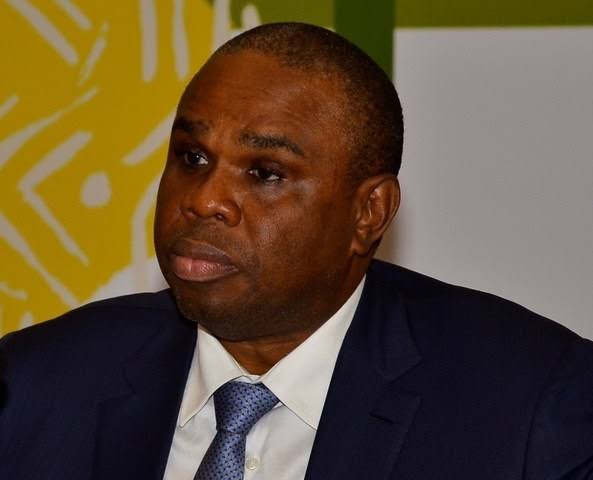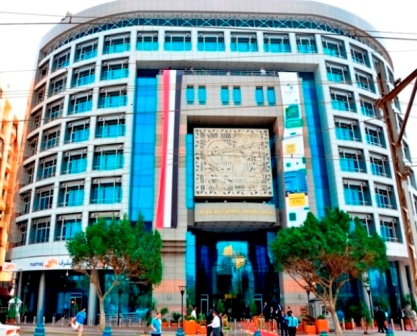Given Opportunity, African Youth Have Been Force for Positive Change, says Prof. Oramah
The new Africa presents the continent’s youth with an excellent battleground to join and wage the economic struggle that will finally liberate Africa, Prof. Benedict Oramah, President of the African Export-import Bank (Afreximbank) has said. Speaking on Wednesday on the topic “Unleashing the Power of the Youth” while delivering the 14th Convocation Lecture of the Nnamdi Azikiwe University (UniZik) in Awka, Nigeria, Prof. Oramah said, “just as Africa’s political struggle was led by the youth, so will the youth lead the way for Africa’s economic emancipation”.

Youths represented agents of change across the social, political and economic spectra and history and contemporary evidence had shown that they had always been the catalyst to economic transformation, constituting the largest proportion of the labour force and the population at the height of the industrial revolutions in the advance countries, he said.
Read also : Prof. Okey Oramah Wins the 2019 African Renaissance and Diaspora Network Private Sector Development Award
“History has shown that where the youth are given the opportunity, they have been the force for positive change,” noted Prof. Oramah who added that he considered the youth to be Africa’s greatest resource, “an asset much more valuable than all the oil and solid minerals we so frequently celebrate”.
He quoted the statement by Dr. Nnamdi Azikiwe, the former President of Nigeria after whom the university was named, that, “The immediate aim of African education should be to develop character, initiative, and ability of the youth of the country, so that they may be reliable, useful, and intelligent in the rapidly changing life and circumstances of their own people. …….. Anything narrower than this must lead to a stagnant and menacing flood of unemployed and unemployable youth.”
Read also : Prof. Oramah Calls for Vehicles that Facilitate Cross-Border Trade in Africa
Prof. Oramah noted that the ubiquitous social media platforms, Facebook, Twitter and Instagram; Tech companies such as Apple and Microsoft; and e-commerce platforms, including Amazon and Alibaba; were founded by people in their youth. Youth-powered digital businesses accounted for about two-thirds of the U.S. economy, one-third of the Chinese economy and eight per cent of the Indian economy, he added, saying that those companies were bigger in value than many African economies.
Despite limited opportunities, however, Africa’s youth was beginning to make important contributions to economic transformation on the continent, said Prof. Oramah. The African versions of Steve Job, Mark Zuckerberg, Alexander McQueen and Calvin Klein were rising like the Phoenix while others, like Aliko Dangote, Tony Elumelu, Lily Alfonso and Njideka Akunyili-Crosby, all started making impact in their various endeavours as youth.
Read also : A New $24m Hummingbird Impact Venture Fund Launched For African Startups
Prof Oramah cited Ndubuisi Eze, a young drone expert who was identified by Singaporean investors at the inaugural Intra-African Trade Fair in Cairo in 2018 and, subsequently, relocated to Singapore where he was able to get support to develop his company and now produces and exports drones to global markets.
Prof. Oramah also highlighted the Nigerian youth-led entertainment industry which is making significant gains and inroads into the global scene and noted that Afreximbank had recently announced a $500 million Creative Industry Financing Facility which was available to operators in the full spectrum of Africa’s creative sector. That facility was expected to boost youth participation in the African creative economy.
Prof. Oramah urged the youth to be prepared to take advantage of emerging opportunities under the African Continental Free Trade Area (AfCFTA) and announced that Afreximbank had launched a number of initiatives and programmes to support African economies and the youth to maximize the benefits of the AfCFTA. Those included an incubation lab being put in place to support innovation and help bring innovative products to market.
Prof. Oramah paid tribute to the leaders whose visions made UniZik possible, including Chief Jim Nwobodo and Dr. Chukwuemeka Ezeife, two former governors of Nigeria’s Anambra State, and former Nigerian President Ibrahim Babangida under whose leadership the former Anambra State University of Science and Technology was renamed Nnamdi Azikiwe University and made a federal university.
Prof. Oramah also paid tribute to Dr. Azikiwe, who was Governor General of Nigeria from 1960 to 1963 and President from 1963 to 1966, saying that he was a freedom fighter who devoted his youth and entire life towards the emancipation of Africa in general and Nigeria in particular.
“He was fearless in his struggle, knew no boundaries in his scope and leveraged his legendary intellectual capacity to overcome the most complex of challenges. He understood the importance of education in the struggle for Africa’s renaissance. His passion for scholarship and Africa’s emancipation – what he stood for and his fulfilled life lived – presents us with an armour to engage in the complex battles of today,” said the Afreximbank President.
Earlier, Prof. Rasheed Abubakar, Executive Secretary of Nigeria’s National Universities Commission and Chairman of the Convocation Lecture, introduced Prof. Oramah, describing him as “one of the greatest minds” and saying that his lecture would stress the primacy of education.
Kelechi Deca

Kelechi Deca has over two decades of media experience, he has traveled to over 77 countries reporting on multilateral development institutions, international business, trade, travels, culture, and diplomacy. He is also a petrol head with in-depth knowledge of automobiles and the auto industry





